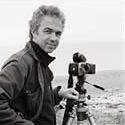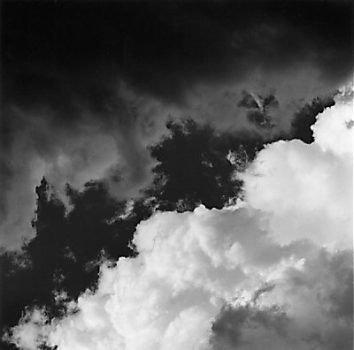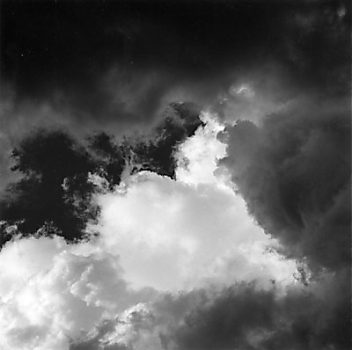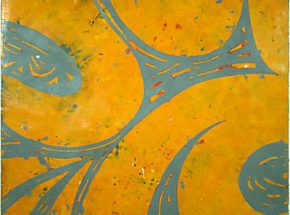

I began making photographs of the landscape in Cape Cod at the age of 16. Growing up on a sparse, thin spit of sand surrounded by ocean anchored my spirit to the land. Driving west to school in San Francisco I was awed by the vastness of the American West. After receiving my BFA from the San Francisco Art Institute and MFA from the University of Colorado, I became Director of the Photography Department of the Sun Valley Center for the Arts and Humanities in 1976 in central Idaho. My feelings moving through the landscapes I encountered during this early portion of my career have become the foundation for my work as an artist. Originally my work used the landscape as a focus of dreams. The images became metaphors for emotion, landscape revealed itself to me through an acute awareness of space. I received a National Endowment for the Arts Photography Fellowship for this work in 1979.
The western United States became my adopted landscape, and I began working in various ways to express the mythologies of the “American West” and our presence in its physical and social landscape. In 1989 I began using the triptych form to link images into implied narrative, recording through visual metaphor our ideological and physical footprint on the land. This format provided a focal point for all my earlier thoughts and sensibilities. In it, narrative and mythology, informed by my studies of western literature and history, came together to address issues facing the modern west. During this period I taught Photography at The School of the Art Institute of Chicago, San Jose State University, the San Francisco Art Institute and the University of New Mexico. I additionally taught at the following workshops: Santa Fe, NM, Friends of Photography, CA, Penland School of Crafts, NC, and Anderson Ranch, CO. In 1990 I received a California Arts Council Artist Fellowship. In 1994 I relocated to the Pacific Northwest and began considering its lush woodlands, listening to the narrative of a new landscape.
In the spring of 1996 I was awarded an Artist Fellowship as Photographer in Residence for the Seattle Water Department through the Seattle Arts Commission. I photographed for nine months creating a narrative series of photographs addressing the many aspects of how water comes to the city and celebrating the people who make it possible. The images in this body of work follow the water from its source in the Cascade Mountain range, to the water flowing from city faucets.
In 1999 this residency was expanded to include all of Seattle Public Utilities: Drainage and Waste Water, Solid Waste and Recycle, and Community Services. The resulting body of work titled “Citywork,” was exhibited at Seattle’s Bank of America Gallery in April 2000. The final presentation took the form of triptychs, diptychs, and single photographs, 66 pieces in total, containing 170 individual black and white photographs. These works are on permanent exhibition throughout the Seattle Public Utilities facilities and offices.
Since 2000 I have been the Photographer in Residence for Sound Transit, the newly formed Puget Sound Regional Transit Authority, which is initiating a massive transit expansion in the Seattle area to be built over the next five to ten years. My roll has been to create a visual interpretation of the construction and neighborhood sites as well symbolize the work in progress within a variety of environments and communities. To celebrate the re-introduction of Commuter Rail in the Puget Sound Region, Sound Transit published a 48 page catalog of my photographs, entitled “Railwork.” This book chronicles the building of five rail stations between Seattle and Tacoma.
Looking back I see the evolution of my work and interests mirroring the landscapes and structures I find myself in. I think of myself as a romantic structuralist, a term I coined to describe how I photograph in a very formal straightforward way structurally, which frees the subject up for interpretation, creating an opening for emotion and meaning. My work always seems to return to the ways memory and myth overlay reality, a problem perfectly matched with the camera’s ability to frame the world.
I am committed to creating regional work in the sense of believing my artistic role to be that of intermediary between viewer and environment, engaging with the place I occupy; re-representing a place to remove it from the everyday and open it up to the influx of meaning.
Peter de Lory, Seattle, Washington 2003
Website
http://www.peterdelory.com


